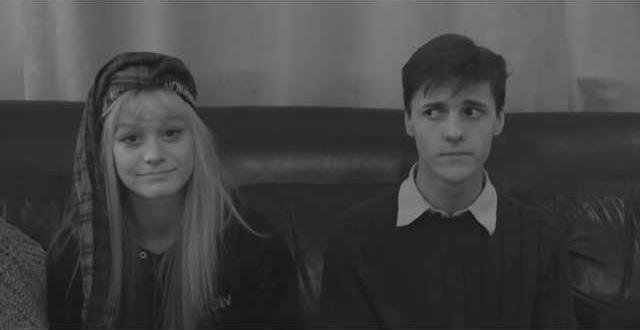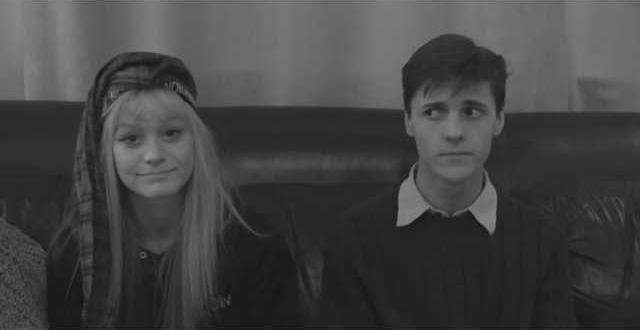Kirsten Fitzpatrick and her daughter Olivia Cantu want to help people with autism conquer the struggles they face when dating. To do so, theyve started a social network called Spectrum Singles, which will help bring those with autism together on dates, much like other online dating websites, according to The Huffington Post.
Fitzpatrick and Cantu, who both have autism, felt the medical issue brings about some social concerns that make dating difficult, HuffPost reported. Cantu specifically said to HuffPost that she couldnt find people to date or befriend who understood her medical concerns.
"Many of my nonautistic friends did not understand some of the difficulties I faced with overwhelming sensory environments," Cantu told HuffPost. "I wanted to find people I could be free to be myself with."
The dating website draws inspiration from other online dating social networks, like eHarmony. New users take The Spectrum Compatibility Test once they create a profile, which is used to match members with people who have similar levels of the autism disorder.
Spectrum Singles members are assigned a color based on their results, which matches them to other users either for a romantic relationship or a friendship, HuffPost reported.
Dating with autism isnt an easy thing. The Atlantics Emily Shire writes its hard for those with autism to date when a big smile can be frightening. Certain environments also make it difficult for those with autism to find comfort on a date, Shire wrote. This can prove cancerous to the dating life, since each date could potentially be filled with distractions, concerns and worries that disrupt the date.
If it's a loud, crowded place, an individual on the spectrum may be uncomfortable or distracted, Dorsey Massey, a social worker, told The Atlantic. It may give them discomfort for someone to kiss them lightly or hold their hand.
Others with autism also find problems from some of datings most mundane moments, Shire wrote. Simple gestures like staring and flirting can be frightening to those with autism, which potentially puts relationships on the wrong foot from the beginning, Shire wrote.
First, a couple notices each other across the room. They make eye contact and look away, and they look again and they look away, said Dr. Elizabeth Laugeson, a professor at UCLA, to The Atlantic. The look-away makes it known you're safe, but the common error someone with autism can make is to stare, which can seem predatory and scare a person.
Laugeson runs a UCLA dating clinic called PEERS, the Program for the Education and Enrichment of Relational Skills, that teaches those with autism how to flirt and interact with other young people. It's also a way to make those with autism feel more comfortable in social situations. The program helps students who have trouble with ADHD, depression and other mental health disorders.
PEERS isnt the only group looking to spread awareness about the troubles those with autism face with dating. A new documentary called Autism in Love shows how those on the autism spectrum learn to date, especially when its such a difficult task for them.
The films director Matt Fuller and producer Carolina Groppa spoke to The Huffington Post this week and said that the film shows that those with autism have many of the same dating problems everyone does. Dating is a mix of awkward moments that make us all search for the best practices, which both those with and those without autism can relate to, Groppa said.
"You watch the film and you forget that the people you are watching have autism," Groppa told HuffPost. "There is really no separation between a neurotypical person and the people on screen, because the struggles that they have, we all have. And that's really the bottom line, the common thread between us all."
Fitzpatrick and Cantu, who both have autism, felt the medical issue brings about some social concerns that make dating difficult, HuffPost reported. Cantu specifically said to HuffPost that she couldnt find people to date or befriend who understood her medical concerns.
"Many of my nonautistic friends did not understand some of the difficulties I faced with overwhelming sensory environments," Cantu told HuffPost. "I wanted to find people I could be free to be myself with."
The dating website draws inspiration from other online dating social networks, like eHarmony. New users take The Spectrum Compatibility Test once they create a profile, which is used to match members with people who have similar levels of the autism disorder.
Spectrum Singles members are assigned a color based on their results, which matches them to other users either for a romantic relationship or a friendship, HuffPost reported.
Dating with autism isnt an easy thing. The Atlantics Emily Shire writes its hard for those with autism to date when a big smile can be frightening. Certain environments also make it difficult for those with autism to find comfort on a date, Shire wrote. This can prove cancerous to the dating life, since each date could potentially be filled with distractions, concerns and worries that disrupt the date.
If it's a loud, crowded place, an individual on the spectrum may be uncomfortable or distracted, Dorsey Massey, a social worker, told The Atlantic. It may give them discomfort for someone to kiss them lightly or hold their hand.
Others with autism also find problems from some of datings most mundane moments, Shire wrote. Simple gestures like staring and flirting can be frightening to those with autism, which potentially puts relationships on the wrong foot from the beginning, Shire wrote.
First, a couple notices each other across the room. They make eye contact and look away, and they look again and they look away, said Dr. Elizabeth Laugeson, a professor at UCLA, to The Atlantic. The look-away makes it known you're safe, but the common error someone with autism can make is to stare, which can seem predatory and scare a person.
Laugeson runs a UCLA dating clinic called PEERS, the Program for the Education and Enrichment of Relational Skills, that teaches those with autism how to flirt and interact with other young people. It's also a way to make those with autism feel more comfortable in social situations. The program helps students who have trouble with ADHD, depression and other mental health disorders.
PEERS isnt the only group looking to spread awareness about the troubles those with autism face with dating. A new documentary called Autism in Love shows how those on the autism spectrum learn to date, especially when its such a difficult task for them.
The films director Matt Fuller and producer Carolina Groppa spoke to The Huffington Post this week and said that the film shows that those with autism have many of the same dating problems everyone does. Dating is a mix of awkward moments that make us all search for the best practices, which both those with and those without autism can relate to, Groppa said.
"You watch the film and you forget that the people you are watching have autism," Groppa told HuffPost. "There is really no separation between a neurotypical person and the people on screen, because the struggles that they have, we all have. And that's really the bottom line, the common thread between us all."








